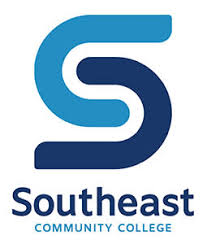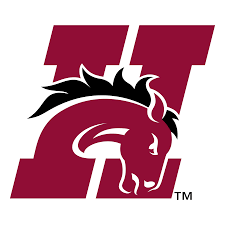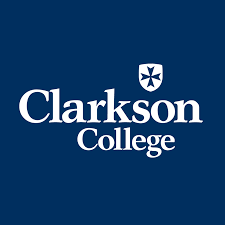Southeast Community College
Southeast Community College
General Information
About Southeast Community College
Southeast Community College (SCC) is a public community and technical college system serving southeastern Nebraska. It was established in 1973 (initially as Southeast Technical Community College) and now operates main campuses in Lincoln, Milford, and Beatrice, along with multiple learning centers throughout the region. SCC offers a broad spectrum of degree, diploma, and certificate programs in both academic transfer and career-technical tracks.
The institution emphasizes accessible education, workforce alignment, and community responsiveness. By combining hands-on training, academic instruction, and regional industry partnerships, SCC strives to equip students for both immediate employment and further education pursuits. The college serves a multi-county service area and aims to foster economic development by producing skilled graduates in health care, industrial technology, business, agriculture, and public services. SCC also supports non-credit continuing education, adult learning, and dual credit opportunities for high school students.
Contact Information
Address (Lincoln Campus): 8800 O Street, Lincoln, Nebraska 68520
Phone: (402) 471-3333 (Lincoln campus main line)
Email: (Admissions or general inquiries handled by campus offices; prospective students should contact local campus offices for specific email addresses)
SCC School Facts
| Category | Details |
|---|---|
| Founding Year | 1973 (as Southeast Technical Community College) |
| Type | Public community and technical college |
| Campuses / Centers | Main campuses in Lincoln, Milford, Beatrice; plus learning centers in multiple towns |
| Credentials Offered | Associate degrees, diplomas, technical certificates |
| Service Area | Southeastern Nebraska, across many counties |
| Accreditation / System | Part of Nebraska community and technical college system; programs aligned with state standards |
| Motto / Tagline | SCC emphasizes quality education, affordability, and workforce preparation |
Southeast Community College Rankings
| Category | Rank / Status |
|---|---|
| National (U.S.) | Not included in major national university rankings |
| Global | Not ranked |
Because Southeast Community College is a regional community and technical institution, it is generally not ranked in broad national or global ranking systems. The institution’s reputation is better gauged through student outcomes like graduation, employment, and transfer rates.
Southeast Community College Academics
Southeast Community College Faculties / Departments
- Health Sciences / Allied Health
- Industrial Technology / Trades
- Business and Management
- Agriculture and Applied Sciences
- Information Technology / Computer Science
- Liberal Arts & Sciences / General Education
- Public Service / Criminal Justice
- Continuing Education / Adult Learning
- Academic Transfer Programs
Southeast Community College Courses and Programs / Majors
- Associate of Arts / Associate of Science for transfer
- Associate of Applied Science in Nursing / Practical Nursing
- Diploma or Certificate in Medical Assistant
- Certificate in Welding Technology
- Certificate in Industrial Maintenance
- Certificate in Computer Information Systems
- Diploma in Logistics & Supply Chain
- Certificate in Early Childhood Education
- Certificate in Criminal Justice
- Programs in Agriculture, Culinary, Culinary Hospitality
Online Learning
SCC offers a variety of online and hybrid courses to accommodate students who require flexibility. Many general education courses, transfer-level classes, and some certificate or diploma programs may be offered partially or fully online. These online options allow students to combine in-person lab requirements with remote coursework, which broadens access across its service area.
Average Test Scores
| Test | 25th Percentile | 75th Percentile |
|---|---|---|
| SAT | Not reported | Not reported |
| ACT | Not reported | Not reported |
| GRE / Other | Not reported | Not reported |
Standardized test score data is not publicly emphasized for SCC admission requirements, especially for technical and community college programs.
Retention and Graduation Rates
SCC tracks retention and graduation outcomes to assess performance. The freshmen (first-year) retention rate is approximately 64 percent for full-time students. The six-year graduation rate for full-time cohorts is around 30 percent, and completion within four years is about 33 percent. Some students complete within eight years. These figures reflect the realities of part-time enrollment, program length variation, and student balance of work or life responsibilities.
Southeast Community College Admissions
GPA Range and SAT / ACT Range
SCC primarily employs open or broad-access admission, meaning there is no strict minimum GPA or SAT/ACT score requirement for many of its programs. Eligibility typically centers on completion of high school or equivalent and meeting any program-specific prerequisites.
Southeast Community College Acceptance Rate
| Category | Rate / Status |
|---|---|
| Acceptance Rate | 100 % (open admission to eligible students) |
Because SCC is a community-level institution with broad access policies, most applicants who meet basic educational requirements are accepted.
Southeast Community College Application Requirements
Applicants must complete the SCC application (online or paper) and submit proof of high school completion or GED equivalency. Official transcripts may be required for transfer credit evaluation. Some programs may require placement testing or readiness assessments in math or English. Proof of residency may be required for in-state tuition rates. Additional requirements may include immunizations, background checks, or specific prerequisites depending on health or technical programs. The admissions staff guides prospective students through course selection, program eligibility, and support services.
Application Process
- Submit SCC application form and pay any required fee.
- Provide high school or GED transcript.
- If applicable, request transcripts of previous college coursework.
- Take placement or readiness exams if required.
- Select campus and program, and meet with an advisor.
- Register for classes and enroll in the semester.
SCC Application Deadlines / Important Dates
| Term / Session | Deadline or Enrollment Period |
|---|---|
| Fall | Typically mid to late summer before semester begins |
| Spring | Late fall prior to spring term |
| Summer | Spring preceding summer term |
| Rolling / Continuous Enrollment | Many programs accept applications until spots fill |
Because SCC has multiple campuses and program cohorts, deadlines can vary by campus or program. Applicants are advised to apply early.
Essay Prompt
SCC does not generally require an essay or personal statement as part of its admissions process.
Southeast Community College Scholarships
SCC offers financial aid and scholarship opportunities for qualified students, including federal Pell grants, state scholarships, institutional awards, and program-specific scholarships. The financial aid office helps students apply for assistance and develops aid packages. Many students receive grants or scholarships that reduce their net tuition cost significantly.
Southeast Community College Tuition and Fees
| Category | Average / Estimate |
|---|---|
| Published Tuition (in-state) | $2,912 per year (2023 data) |
| Books & Supplies | $1,778 (average) |
| Room & Board (off-campus estimate) | $8,988 |
| Average Net Price After Aid | $8,011 |
| Application / Other Fees | Varies by program |
These cost estimates come from recent data and represent typical expenses before financial aid. Actual student costs may be lower with grants and scholarships.
Southeast Community College Student Profile and Demographics
Student Demographics
SCC’s student population is diverse in gender, age, and race/ethnicity. About 74 percent of the student body identifies as White, approximately 11–12 percent as Hispanic or Latino, 5 percent as two or more races, about 5 percent as Black, and around 3 percent as Asian or other categories. The institution serves both traditional-age and nontraditional adult learners, many of whom balance work, family, and educational responsibilities.
Low-Income Students / Students with Disabilities
A substantial portion of SCC students receive financial aid; data indicates that roughly one-third of undergraduates are recipients of grants, and a significant share take loans. Many students come from lower-income backgrounds, and the institution offers support services and accommodations for students with disabilities. The goal is to reduce barriers and provide equitable access to education and training.
Student Body
| Category | Number / Percentage |
|---|---|
| Total Students | ~9,799 |
| Full-Time Students | 3,302 (≈ 33.7 %) |
| Part-Time Students | 6,497 (≈ 66.3 %) |
| Gender Distribution | ~55 % Female / ~45 % Male |
| Students Receiving Aid | ~34 % receive grants; ~37 % receive loans |
| Student-to-Faculty Ratio | ~12:1 average in recent years |
University Diversity
Diversity at SCC is a core strength. Students of various racial, cultural, and socioeconomic backgrounds converge in classrooms, labs, and field training environments. The presence of Hispanic, Black, multiracial, Asian, and other populations contributes to a cross-cultural learning environment that simulates real-world workplaces. SCC’s multi-campus setup further draws learners from rural, suburban, and urban communities across southeastern Nebraska, enhancing geographic and experiential variety. Many students are adult learners who bring life, work, and family experience to their educational journey, making peer learning richer and more relevant. The college actively supports diversity through inclusive services, student organizations, and programs aimed at closing achievement gaps. Such diversity not only benefits social learning but also prepares graduates to work in multicultural settings in health care, business, public service, and technology.
Average Earnings
Graduates from SCC’s career-technical programs often transition quickly into the workforce, with many obtaining jobs in their field of training. According to recent graduate placement reporting, over 90 percent of SCC graduates are either employed or continuing their education shortly after graduation, signifying strong alignment with employer demand. Starting wages vary by program—for example, health care, industrial technology, and business graduates typically earn entry-level salaries that grow with experience and credentials. Over time, many build to mid-level earnings, especially those who stay in high-demand sectors, pursue additional certification, or advance into supervisory roles. Because SCC emphasizes practical, workforce-aligned education, its graduates tend to see measurable return on investment as they gain experience, specialization, and professional growth.
Southeast Community College Faculty and Staff
Teachers and Staff
SCC employs faculty and staff who bring a mix of academic credentials and industry experience. Many instructors hold advanced degrees and maintain current professional certifications. Because SCC offers both academic transfer and technical training, faculty expertise spans from theoretical disciplines to hands-on applied skills. Staff teams include academic advising, registration, financial aid, student services, lab and shop supervision, and administrative support. The institution maintains a balance between full-time and part-time faculty, with about 51 percent of faculty teaching full-time in recent data.
Faculty Profiles (Expertise, Achievements)
Faculty members at SCC often integrate real-world practices into instruction, drawing from professional experience in business, health care, trades, agriculture, and technology. Many engage in curriculum development to keep programs aligned with evolving industry standards. Some contribute to professional organizations, publish or present research or best practices, and mentor students into internships or job placements. Their achievements often include program accreditation leadership, grant or industry-sponsored project involvement, and recognition for student success support.
Southeast Community College Campus and Student Life
Campus Life / Housing
SCC campuses are primarily commuter-based, and the institution does not generally offer on-campus housing for students. Many learners reside in nearby communities or commute daily. Despite being non-residential, SCC fosters campus engagement through student clubs, organizations, intramural activities, student government, and campus events. The Lincoln campus includes features like a culinary institute with a restaurant setting for hospitality students, and health science buildings with labs and simulation facilities. At the Beatrice campus, agricultural programs include farm operations integrated into academic experiences. The college seeks to provide an enriched campus life experience despite its commuter character.
Transportation
Access to SCC campuses relies heavily on road networks and personal vehicles. Many students drive or carpool. Some campuses and learning centers may have access to local public transportation depending on the town or city infrastructure. Parking is typically available at campus sites, and the college may provide transit information for students commuting from surrounding areas. Because technical and lab-based courses often require in-person attendance during business hours or lab shifts, reliable commuting is an essential consideration for prospective students.




